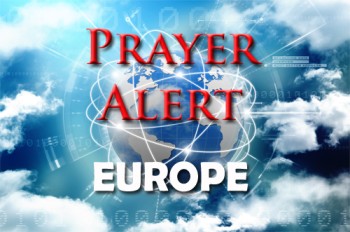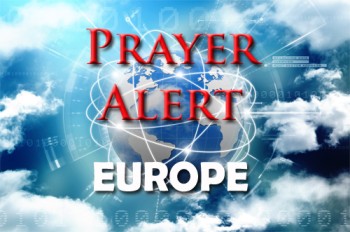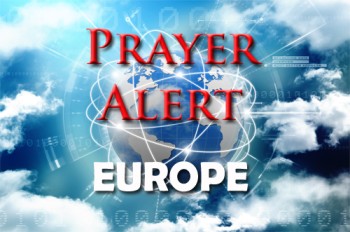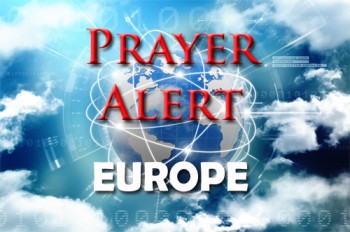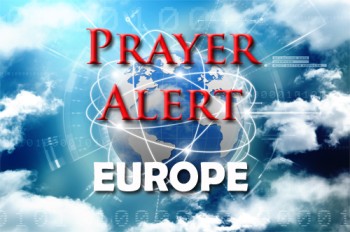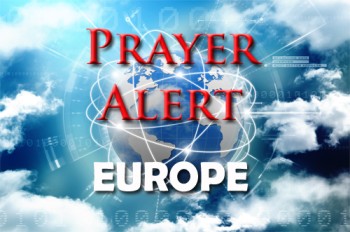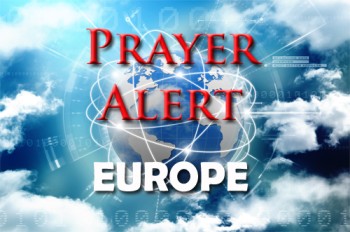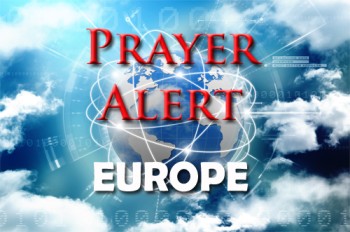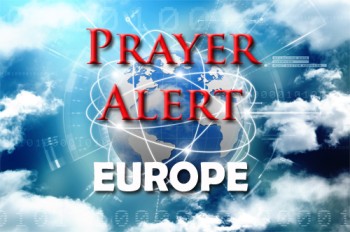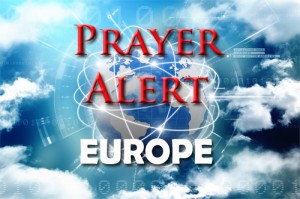Displaying items by tag: Viktor Orban
Hungary: Orban welcomes Netanyahu, withdraws from ICC
Benjamin Netanyahu has praised Hungary for its decision to withdraw from the International Criminal Court (ICC) during a four-day visit to Budapest, marking a rare foreign trip for him since the ICC issued an arrest warrant against him for alleged war crimes in Gaza. Prime minister Viktor Orban, a staunch ally of Netanyahu, condemned the ICC's warrant as politically motivated and announced Hungary's intention to leave the court. Israel has also rejected the ICC’s accusations, arguing that they were driven by antisemitism and undermined Israel's right to self-defence. Hungary, as a founding member of the ICC, is still technically bound by its commitments; the process of withdrawal will take about a year. Other European countries are split on the validity of the warrant: some have expressed legal doubts. Netanyahu left on 6 April for Washington: the USA is not a member of the ICC, and neither are China or Russia.
Hungary: Orbán claims EU wants to install a puppet regime
In a fiery speech commemorating the 1956 uprising, Viktor Orbán has accused the EU of plotting to topple his government and install a ‘puppet regime’. He compared past occupations of Hungary by the Ottoman Empire and the Soviet Union to current tensions with the EU. He also claimed the EU is pushing Hungary into Russia's war in Ukraine, criticising Brussels' support for Kyiv. Hungary has repeatedly blocked or diluted EU sanctions on Russia and aid to Ukraine, aligning itself closer to Moscow. Also, Orban’s government has recently been fined €200 million by the European Court of Justice for ‘unprecedented and exceptionally serious breach of EU law’ because of the country's strong restrictions on the right to asylum.
EU: von der Leyen criticises Hungary’s policies
European Commission president Ursula von der Leyen has sharply criticised Hungary's foreign policies, accusing Viktor Orban of endangering European security. In a speech to the European parliament, she took aim at Hungary's reluctance to support Ukraine in its war with Russia and its growing relationships with Russia and China. She said that Orban's government is weakening EU unity by easing visa restrictions for Russians and Belarusians, and allowing Chinese police to operate in Hungary. Von der Leyen also stressed the dangers of Hungary’s continued reliance on Russian energy and its failure to align with EU energy security measures. Orban, in response, defended his policies, calling for a ceasefire in Ukraine and rejecting any comparison between Ukraine's current situation and Hungary’s 1956 uprising against Soviet rule.
Ukraine: Orban visits, calls for ceasefire
In his first visit to Ukraine for ten years, Viktor Orban has called for a ceasefire. A longstanding critic of Western military aid to Ukraine, he suggested that a swift ceasefire could expedite peace talks. He also expressed a desire to improve ties with Ukraine and offered economic assistance. Zelensky appreciated his visit, but stressed the need for a ‘just peace’ after over two years of fighting. Orban’s visit coincides with Hungary’s assumption of the EU presidency, which has raised concerns due to Budapest’s warm ties with Moscow. In the past, Hungary has accused Ukraine of curbing the rights of ethnic Hungarians, which Kyiv denies. Zelensky has recently said he is preparing a comprehensive plan for ending the war.
Netherlands: prime minister to become new NATO head
Dutch prime minister Mark Rutte is set to become the next NATO secretary-general after Hungary lifted its veto, following a letter from Rutte to Viktor Orbán. The letter promised Orbán that, as NATO head, Rutte would not deploy Hungarian troops or use its funds to support Ukraine. The current secretary-general, Jens Stoltenberg, says the selection process will conclude ‘very soon’. Orbán posted the letter on social media, confirming Rutte’s commitment to the agreement. Rutte acknowledged past remarks which had caused dissatisfaction in Hungary and reassured Orbán of his respect for the deal made between Stoltenberg and Orbán in Budapest. His confirmation depends on consensus among all NATO members; with the veto lifted, he is now poised to succeed Stoltenberg.
Hungary: Orban opposes Ukraine joining EU
Hungary's ruling party, Fidesz, has submitted a resolution opposing Ukraine's accession talks with the European Union (EU). Fidesz, led by Prime Minister Viktor Orban, cited concerns about the treatment of ethnic Hungarians in Ukraine, particularly regarding language rights and education. The resolution calls for a halt to Ukraine's EU accession process until these issues are resolved. Hungary has been critical of Ukraine's policies towards its Hungarian minority for years, and this move adds to the ongoing tensions between the two countries. Ukraine has been seeking closer ties with the EU, but Hungary's opposition could complicate those efforts. On 7 December, Volodymyr Zelensky’s chief of staff called for a meeting between Orban and Zelensky, in an attempt to resolve the problem before next week’s meeting of EU states.
Hungary: a Christian democracy?
Prime minister Viktor Orbán believes Europe can be saved if it returns to its ‘real values, its Christian identity.’ He said, ‘We Hungarians believe that Christian culture is the cornerstone that holds the architecture of European civilisation in place’. Hungary differs from Europe in its attitude to illegal immigrants. While resisting the influx, it tries to help people to live and thrive in their own countries by rebuilding schools, hospitals and dwellings in troubled parts of the world and providing education at Hungarian universities for young people. Orbán has said, ‘Hungarian people and their government believe that Christian virtues provide peace and happiness to those who practise them. This legacy obliges us to protect Christian communities persecuted across the world as far as we are able.’ Hungary also bans the teaching of homosexuality in schools, which Emmanuel Macron says is ‘not in line with Europe’s values and what Europe is’. The country has moved from Soviet domination through post-communist chaos to Christian democracy.
Hungary puts own interests first
As countries around the world take sides in Russia's war against Ukraine, Hungary is the only country in the region refusing to help Ukraine fight Russia. That means no military aid or weapons shipments across its borders despite personal pleas from President Zelenskyy. Hungary said, ‘This is not our war, so we want to and will stay out of it.’ Viktor Orban, Hungary’s president, is widely seen as Putin's European ally. He has sought neutrality in the war despite Hungary’s membership of NATO and the EU. He is threading a middle road between friendliness with Russia and belonging to these organisations because Russia supplies 90% of Hungary's raw energy needs. So he has blocked the EU from imposing sanctions on Russian energy imports - Europe's weapon to put pressure on Putin. ‘Cheap Russian oil is more important for Hungarian politicians than Ukrainian blood’, said the Czech Republic's defence minister.
Hungary: Viktor Orban criticises Ukraine's Zelensky
Prime Minister Viktor Orban won his fourth term in Hungary’s general election. In his victory speech, Orban said, ‘We never had so many opponents, Brussels bureaucrats, the international mainstream media, and the Ukrainian president.’ He has close ties with Moscow and has banned transferring arms to Ukraine. Victory for Orban means a headache for the EU. In 12 years of tenure, he has rewritten the constitution, filled the top courts with his appointees, and changed the electoral system to his advantage. During campaigning, the opposition's catchphrase was ‘Orban or Europe’ complaining he had isolated Hungary from the European mainstream, from consensual democracy, fairness and decency. Hungary is isolated in the EU and NATO - but neither institution will ostracise him. They want to show Russia Western unity so he will remain an unpredictable thorn in their side. Orban said Hungary would pay Russia in rubles for gas – other European countries have ruled it out.
Hungary: Viktor Orban - ‘The most dangerous man in Europe’
This week, Viktor Orbán was elected for a third consecutive four-year term as Prime-Minister of Hungary. In 1989, he addressed 250,000 people in Budapest calling for free elections and the withdrawal of Soviet troops. He became famous in Hungary and abroad overnight. The right-wing populist now leads Hungary towards the return of ethnic nationalism and deep-rooted corruption. He eliminated constitutional safeguards, successfully reshaped the state in his own image, and is considered to be a potential threat to the EU. He has been described by the European Stability Initiative as the ‘most dangerous man in the European Union’. A Pew Research poll in 2016 ascertained, ‘Hungarians were the most likely to believe ‘refugees would increase terrorism in their country’. Orban pioneered what scholars describe as either ‘half democracy in decline’ or ‘soft autocracy;’ merging crony capitalism with right-wing rhetoric. He flatly rejects accusations of impropriety of the sources of his allies’ enrichment. Opposition speakers in parliament repeatedly complain that he has become not only the most powerful but also the richest millionaire in Hungary.
